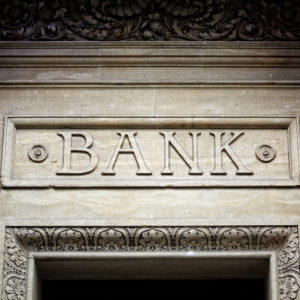NBC’s “Saturday Night Live” has justifiably taken heat after one of the show’s comedians asserted that “debanking” is not a real word and that former president Donald Trump made up the word in a recent campaign speech. The comedian, Colin Jost, aimed to undermine confidence in Trump’s mental acuity by using the term. Instead, Jost demonstrated his own ignorance.
In the January 27 show, Jost said, “Trump did have a slight stumble this week while talking about banks, and he introduced a new term called ‘debank.’ … I don’t know what the hell debank means, but he might have to take de-ambulance to see da-doctor.”
Of course, anyone familiar with the financial services industry knows debanking is not a new term. It refers to the process of a bank closing all of a customer’s accounts. Hence, the customer can no longer conduct financial operations as part of the normal community of credit and banking consumers.
The term “debank” has gained salience in recent years. Some politically conservative people have perceived their bank accounts to have been closed partly because of their views.
In general, debanking is a way that financial institutions can marginalize consumers and businesses. There are two broad reasons that financial institutions have debanked people and businesses.
One, the financial institution deems the person or business too risky for a bank account because they exhibit behaviors such as carrying negative balances and having excessive overdrafts. Two, the person or business is engaged in legal commerce that government regulators nevertheless deem to be undesirable, which, under Operation Choke Point, created problems for gun stores, tobacco shops and adult film actors, among others.
The debanked individuals are often among the nearly four in 10 Americans who, according to the Federal Reserve Board, do not have adequate savings to cover a $400 emergency expense. This segment of society is significant, and many people in it know acutely the tangible distress of being debanked.
The fact is, debanking has been happening to an array of marginalized people for many years.
Once debanked, the segment of the population unable to consistently cover everyday expenses is often categorized as “underbanked” or “unbanked. Underbanked and unbanked people know they are unlikely to get the credit they need from traditional financial services, and they regularly turn to alternative sources of credit to make ends meet during financial emergencies. This includes pawn shops, small-dollar or “payday” and installment loan providers, car title loan businesses and more.
Once a person is debanked, these lenders are the rational choice for obtaining credit, particularly in emergencies.
Indeed, in doing research for her 2018 book “The Unbanking of America,” based on her own firsthand experience working in the alternative lending industry, the University of Pennsylvania’s Lisa Servon found that consumers who turn to alternative lending businesses for short-term high-interest emergency credit are making well-informed choices for their personal financial wellbeing.
Alternative credit providers are highly regulated and offer diverse and accessible product lines customized for people with less-than-perfect credit. Small-dollar lenders present one of the few opportunities for people with damaged credit scores or nonexistent credit history to establish prime credit scores and enter the credit community that economically advantaged people enjoy.
It’s worth noting that when policymakers place artificial constraints on credit access, marginalized people face what is known as credit “deserts.” The one-two punch of being debanked and abandoned in a credit desert presents devastation that few wealthy people can understand.
All Americans deserve equal access to credit. There is no merit in limiting access to credit through debanking consumers and forcing them to seek unregulated, back-alley credit or to bounce a check, go bankrupt, pile up debt on a credit card, or be forced into other, even worse alternatives.
There is also no virtue in trying to score political points or making a joke over debanking. It’s a serious problem that requires good-faith, bipartisan efforts to solve with sound economic practices and good public policy.

